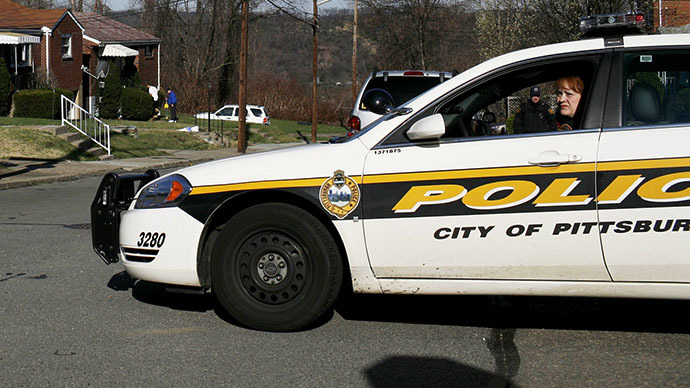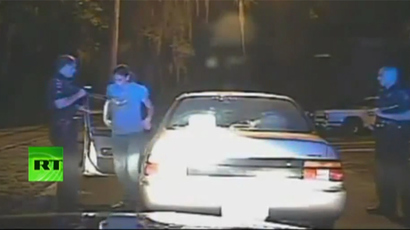DNA samples taken at police checkpoint ‘gross abuse of power,’ say PA drivers

A Pennsylvania community is asking questions after a government contractor, with help from the local police, pulled drivers off the road and into a parking lot to ask about their driving and – most notably – pressure them into providing a DNA sample.
Residents in Reading, Pennsylvania said they were forced off the road by employees of the Pacific Institute for Research and Evaluation, a contractor hired by the National Highway traffic Safety Administration and the White House Office of National Drug Control Policy. But the Reading city police were also at the scene with the lights in their patrol cars flashing, which drivers said gave the experiment a level of legitimacy it should not have had.
“I feel this incident is a gross abuse of power on many levels,” Ricardo Nieves, a Reading resident who was stopped in the search, told the City Council, as quoted by the Reading Eagle.
Police officials have maintained that the search was only meant to poll drivers on their habits behind the wheel and that the DNA collection was intended to detect prescription drug use. That explanation has failed to satisfy many, with Mr. Nieves complaining that he had to refuse several times before he was released.
“A federal survey with local police help violates my rights,” he said, adding that he was never told what the swab test was meant for but “clearly it was for DNA.”
Chief William M. Heim told the Reading Eagle that police frequently use checkpoints to inspect for seatbelt use, drunk driving, safety regulations, and a variety of other reasons. He denied Nieves’ claim that this incident infringed on anyone’s rights.
“People are not pressured by police presence to do something they don’t want to,” he said. “In the grand scheme of things, I think it’s a pretty innocuous and minor issue.”
Mary Catherine Roper, a senior staff attorney for the Pennsylvania American Civil Liberties Union, disagreed. The checkpoint in question was designed as part of a three-year nationwide survey that cost taxpayers $7.9 million. But, at a time when the Obama administration is facing heavy scrutiny for the National Security Agency surveillance programs, these surveys are have become especially controversial.
“A car driver or passenger cannot be required or pressured into providing a DNA sample and in fact, can’t be stopped at all except on suspicion of a crime or for a properly conducted sobriety checkpoint,” Roper said.
Police in Ohio, Alabama, and Texas have been criticized for using similar tactics to help researchers. Unlike in some of those states, though, Pennsylvania lawmakers criticized the police action. Councilman Dennis Sterner wondered why investigators seem to be unable to arrest drug dealers without a cumbersome investigation but are allow to stop drivers whenever they choose.














